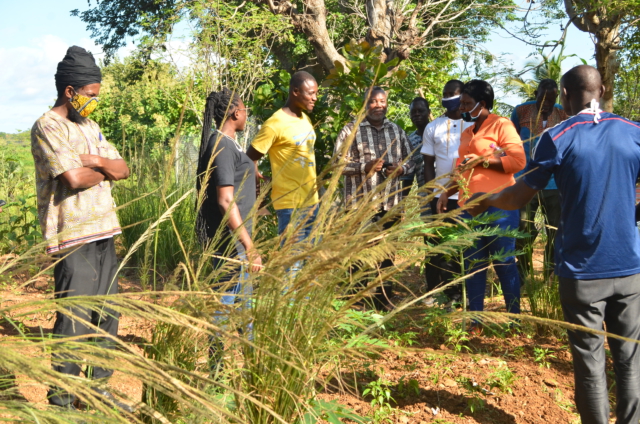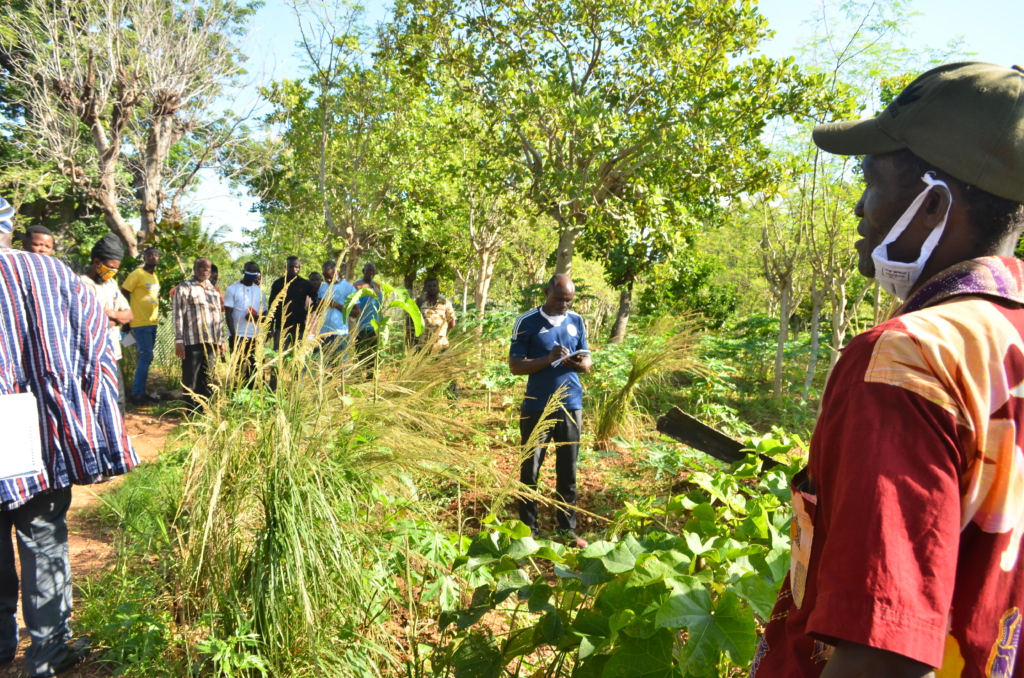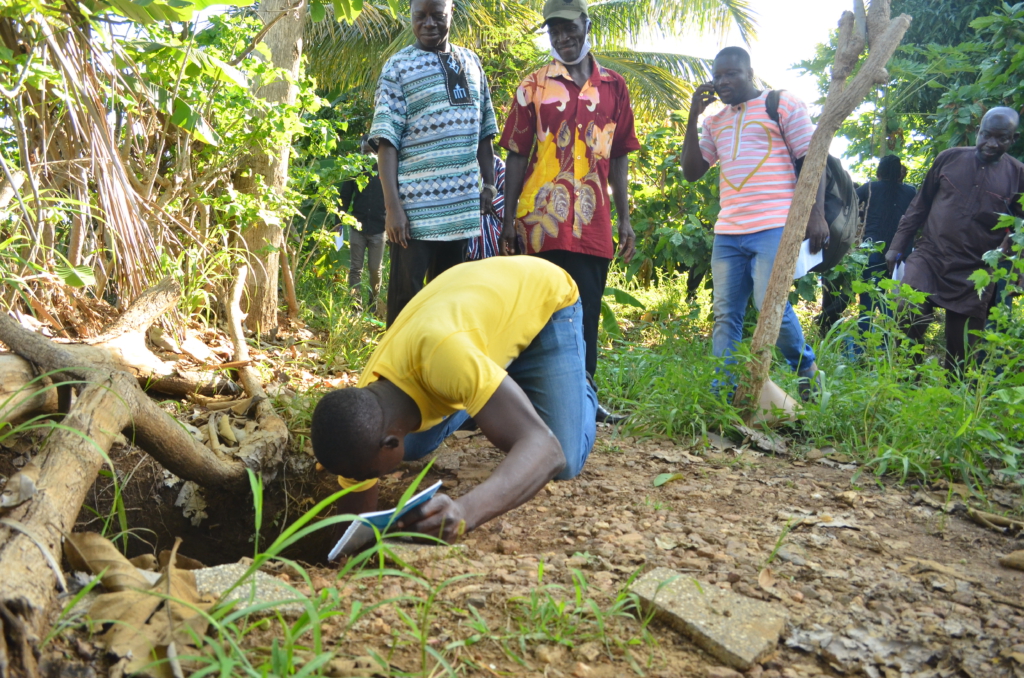Some Civil Society Organisations (CSO) in the Upper East, Upper West and Northern Regions are calling for the suspension of the Plant Breeder’s Bill currently before the Parliament.
They say the Bill is among other things, hostile to the rights of the Ghanaian farmer and also undermines Ghana’s Sovereignty.
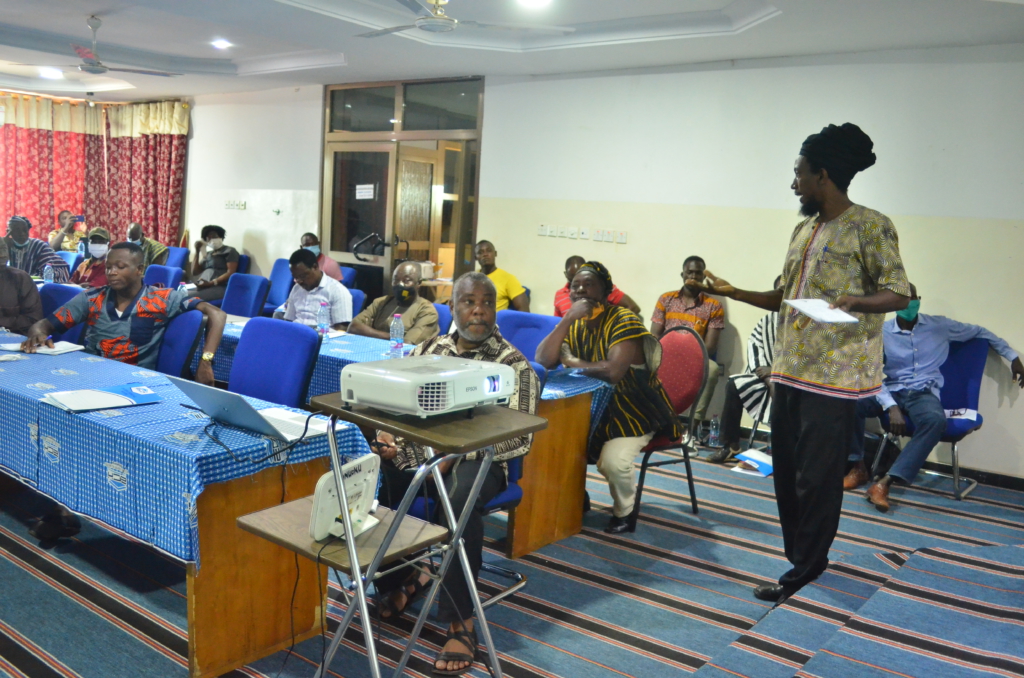
The organisations include the Center for Indigenous Knowledge and Organizational Development (CIKOD), the Peasant Farmers Association of Ghana, the Ghana Muslim Council and other farmer-based groups in the Upper East, Upper West and Northern regions.
The organizations were at a workshop in Bolgatanga, to discuss agroecology and climate change issues.
The aim was to create awareness and strengthen collaboration among stakeholders promoting agroecology in the Savannah ecological zone.
At the end of the workshop, the groups unanimously issued a communique to government, to express their frustrations about the Plant Breeders’ Bill currently before parliament.
Executive Director, CIKOD, Bernard Guri said some of the proposals in the current Plant Breeder’s Bill are hostile to Ghanaian farmers.
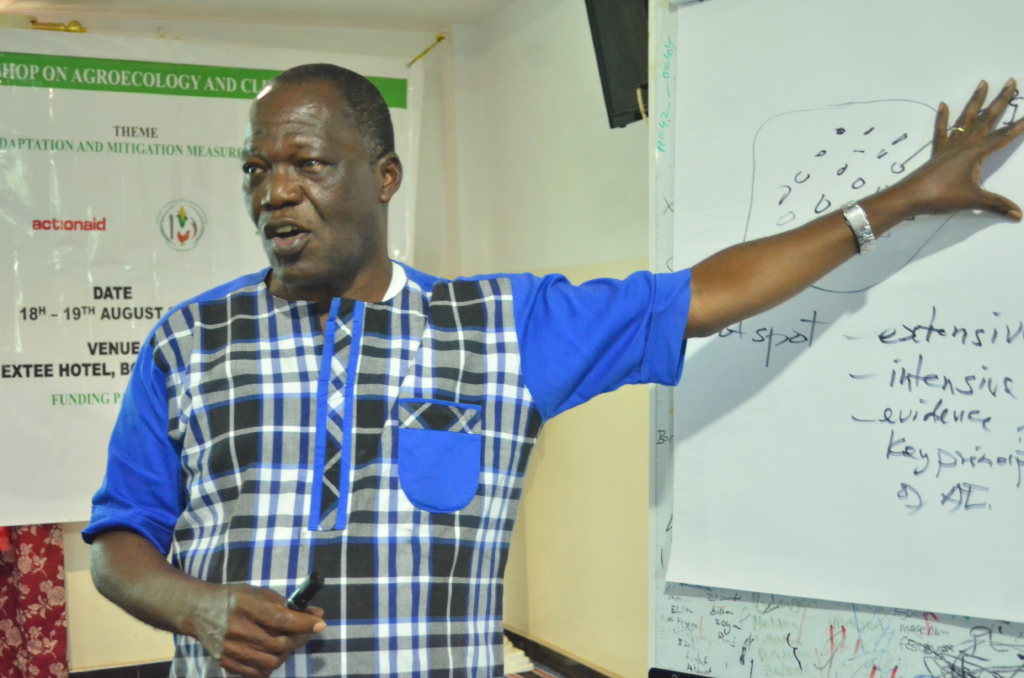
He explained that part of the culture in Ghana when it comes to farming is that farmers at the end of each season, select the seeds they know will germinate best, store them and later share them with other farmers who do not have good seeds.
“But the law the Plant Breeders Bill is seeking to pass stops us from doing that because if for example, a farmer buys seeds from one of these big seed companies, he cannot select the seeds and share them with other farmers because that will be against the law and he is liable to being arrested”, he explained.
Quoting Section 23 of the Plant Breeder’s Bill, the Upper East Regional Focal Person for the Peasant Farmers Association of Ghana, John Akaribo, said the bill if passed into law, will be independent of the constitution of Ghana.
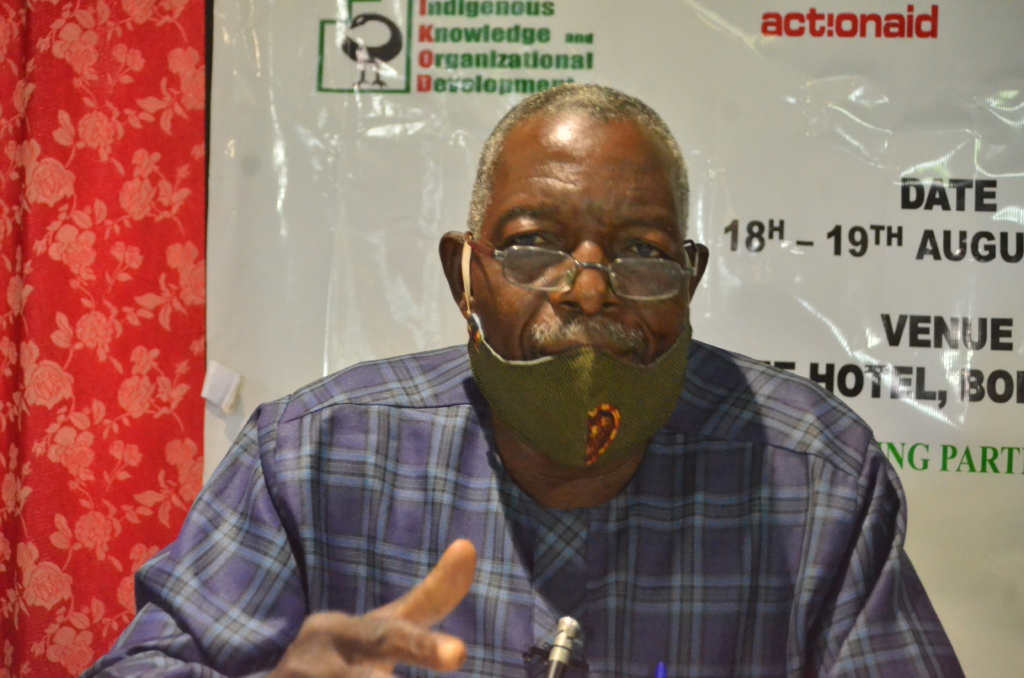
He explained that “if a seed company from outside the country sells seeds to farmers and something goes wrong – let’s say, the seed does not do well, our government cannot take the seed company to task”. “We think this is very bad”, he said.
The Civil Society Organizations are therefore calling on the Parliament of Ghana to refrain from adopting the Plant Breeder’s Bill.
Below, is the full statement they issued.
CIVIL SOCIETY FOOD SOVEREIGNTY PLATFORM IN GHANA
Press Release For Immediate Release
STATEMENT FROM CIVIL SOCIETY ORGANIZATIONS ON THE PLANT BREEDER’S BILL
(Accra, August 19, 2020) – We, the undersigned, organizations and individuals, want an agricultural system that promotes food sovereignty in way that protects the environment and ensures that farmers’ rights and self-determination are realized.
The Plant Breeder’s Bill currently before parliament is harmful to Ghana’s development. Therefore, we unconditionally reject the Plant Breeder’s Bill. The following five (5) reasons explain why the current Plant Breeder’s Bill must be rejected in its totality.
- Hostile to the rights of Farmers:
The bill is hostile to small farmers in particular and farmers generally because it does not allow farmers to sell and exchange seeds from so called “protected varieties,” as it is heavily tilted in favor of commercial breeders and undermines farmers’ rights.
- Undermines Ghana’s sovereignty and weakens its agricultural sector:
Section 23 of the Plant Breeders Bill is directly from the colonizers’ strategy book. Note what it says:
A plant breeder right shall be independent of any measure taken by the Republic to regulate within Ghana the production, certification and marketing of material of a variety or the importation or exportation of the material.
This means that the Ghanaian government has no legal authority over any seed production and marketing firm which deals in improved seed varieties in the country.
- Undermines Ghana’s biodiversity and food sovereignty:
The bill undermines biodiversity as it stifles the ability of farmers in high drought environments to develop drought tolerant seeds.
- Undermines Ghana’s private seed breeders and a competitive industry:
This bill, based as it is on UPOV 91, is designed to strengthen the power of the largest global seed companies and further weakens competition. This puts Ghanaian seed companies at a disadvantage in relation to transnational seed companies.
- Violates the Ghanaian value system:
The bill promotes property rights in plants and plant life. It is modelled on the International Convention for the Protection of New Varieties of Plants of 1991 (UPOV 1991) which a rigid and an inflexible regime for asserting fallacious claims to “property rights” in life, under the language of “plant variety protection” (PVP).
As Ghana’s Parliament prepares to discuss the bill, we urge the august house to consider this.
What Ghana needs:
- A Farmer’s Bill: Ghana needs a Farmers’ bill that promotes and protects the rights small holder farmers in particular and farmers in general. A Farmer’s Bill would include a disclosure of origin provision as an important tool to safeguard against biopiracy.
- A “Sui Generis” system: Ghana has full flexibility under the World Trade Organization (WTO) to develop an effective “sui generis” system for plant variety protection, i.e. to develop a unique system that suits its needs. Other countries which have done this include Ethiopia, India, and Thailand.
- Nationwide community-managed seed exchanges: Parliament should prioritize the development of community-managed seed exchanges. It is necessary that the already existing community-managed mechanism for seed exchanges and sales are strengthened to ensure that seed production is controlled by those who are most relevant for the majority of food produced for consumption in the world – small holder farmers.
The undersigned signatories strongly urge the Parliament to refrain from adopting the Bill because it lacks credibility, legitimacy and does not benefit Ghana.
We are steadfast in realizing a socio-economically just agricultural system, which is environmentally sustainable and that provides nutritious food, for everyone.
Signed by: Bern Guri (Executive Director of CIKOD)
(On behalf of CIVIL SOCIETY FOOD SOVEREIGNTY PLATFORM IN GHANA)
Latest Stories
-
COVID-19 levy to be abolished by end of 2025 – Deputy Finance Minister
18 minutes -
Reach for Change Ghana, 4 others to receive up to GH₵40m from Village Capital
29 minutes -
TBFA delegation meets Vice President to discuss governance and anti-corruption efforts
45 minutes -
NPA CEO calls on security agencies to support fuel stations to operate 24 hours
56 minutes -
MFWA urges gov’t to act against tech firms spreading misinformation
1 hour -
Parliament approves ¢3.2bn for Ministry of Roads and Highways
1 hour -
Afua Asantewaa set to receive National Youth Shakers Conclave and Awards honour
1 hour -
Parliament approves ¢1.2bn for Ministry of Energy and Green Transition
2 hours -
Mahama appoints Abdallah Mashud as Technical Director of SSNIT
2 hours -
Government commits to streamlining regulations for enhanced business growth
2 hours -
Unknown assailants severely attacked herdsman in Central Tongu
2 hours -
3 accused in illegal mining case appear in court
2 hours -
Suspect remanded in domestic violence case
2 hours -
‘You don’t need to be an economist to see E-Levy was poorly designed – Prof. Bokpin
3 hours -
‘E-Levy was emotionally driven, and the results are clear,’ says Prof. Bokpin
3 hours

